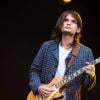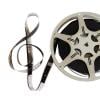
There are many iconic elements to The Godfather, which is celebrating its 50th anniversary this year. Some are lines (“I’m going to make him an offer he can’t refuse”). Others are images (the horse head in the bed). And many are musical, including the mournful theme played by a solo trumpeter that opens the film.
Film-music historian Jon Burlingame argues those melancholy notes paint a musical portrait of the title character, Don Corleone, played so memorably by Marlon Brando.
“It brings forth a sense of the character’s isolation,” he said. “As the head of the family, all important decisions fall to him. He’s older. He’s tired. I think the score brings you a sense of all that.”

A special performance Oct. 29 at the Dolby Theatre in Hollywood will give audiences the chance to appreciate exactly how much composer Nino Rota’s score brings to Francis Ford Coppola’s now-classic film. A full symphony orchestra, conducted by Scott Terrell, will perform the score live as the film is screened.
“There’s a lot of incredible writing in the score,” Terrell said. “That opening trumpet motif is ominous and dark, but what’s really impressive is how it is woven through the film as connective tissue. The variations and colors of that melody develop as the film develops.
“The instrumentation is also very colorful. [Rota] uses a combination of accordion, mandolin, and guitar to create a sort of cafe sound within the bigger orchestra. In that way, he captures the essence of this Italian family.”
Burlingame, who writes regularly on film music for Variety and teaches the history of film music at the University of Southern California, agrees. “Rota was able to bring an authentic-sounding Sicilian feel to the movie,” he said.
“Like all great film composers, I think he was attuned to writing music that added something that you weren’t getting on the screen [via the images]. The violence is there on the screen. The gangster action is there on the screen. What he supplied was a sense of not only the Sicilian family background but also the sadness of the family story.
“I remember seeing it when it opened in 1972. I was in college. I knew Rota’s score for the [Franco] Zeffirelli Romeo and Juliet quite well. My high-school girlfriend played it incessantly. But The Godfather’s score seemed to me to be particularly apt. I remember thinking, ‘This is not your average film score.’”

Terrell, who is chair of orchestral studies at Louisiana State University and a frequent guest conductor with major orchestras around the country, very much agrees. “[Rota] is able to build tension very slowly in critical moments,” he said. “There are moments when he sort of holds your breath. It’s as if he’s extending the action through the music.”
The score has a complicated backstory, according to Burlingame. “Robert Evans, the producer, did not want Nino Rota,” he said. “He wanted Henry Mancini, who was a very bankable name in 1972. I think Evans hoped Mancini would supply a hit tune. In the end, the Rota love theme turned out to be a hit tune.
“Rota was nominated for the Academy Award, but someone — to this day, we don’t know who — blew the whistle on him. The rule was the score needed to have been written specifically for the film. But Rota originally wrote the love theme for an Italian movie 15 years earlier.”
In the earlier film, it was “an amusing, ironic march,” as Rota put it. “For The Godfather, he slowed it down and turned it into a great love theme,” Burlingame explained. “Once this was revealed, the Academy withdrew the nomination — which is kind of a shame. They could have let it slide. But they didn’t.”
Ironically, Rota did win the Oscar two years later for his score for The Godfather Part II, much of which featured recycled music from The Godfather. Burlingame considers that award a kind of apology — one Rota very much deserved.
The Godfather will be performed with a full symphony orchestra at 7:30 p.m. on Oct. 29 at the Dolby Theatre, 6801 Hollywood Blvd. in Hollywood. For ticket information, go to the Dolby Theatre website.



